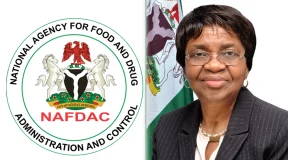The Coronavirus (COVID-19) pandemic is real in Nigeria with nearly 100 confirmed cases recorded so far in the country. But government, banks and private sector leaders are taking steps to curb the spread of the virus and reduce impact of the pandemic on the people.
The Nigerian Private Sector Coalition Against COVID-19 instituted by the Central Bank of Nigeria (CBN) on behalf of the Bankers’ Committee and in partnership with the private sector will be raising funds needed to fight the scourge. Many banks and real sector operators have also risen to the challenge by making cash donations, providing e-learning centers, making loans available to healthcare providers and feeding low-income earners within the populace.
Fighting and defeating Coronavirus (COVID-19) pandemic in Nigeria requires more than government efforts alone. Private sectors, especially banks and real sector operators support is paramount.
That explains why the Central Bank of Nigeria (CBN) last week inaugurated the Nigerian Private Sector Coalition against COVID-19 meant to receive funds from banks and real sector operators to be fight the pandemic.

CBN Governor, Godwin Emefiele who broke the news in Lagos, also announced members of the Funding Committee who are expected to, through their organizations, contribute to the designated account opened at the CBN.
The fund from the coalition is expected to be raised within the next two weeks and deployed to procuring equipment and materials needed to combat the menace of COVID-19 pandemic in the country.
Guaranty Trust Bank and Access Bank have donated to the project N1 billion each. GTBank has aside the donation, officially presented a 100-bed space Intensive Care Centre for Covid-19 patients at Onikan in Lagos for Nigerians that may be infected by the disease. Access Bank has also promised to set up 1,000 bed spaces too.
First Bank of Nigeria Limited has also responded to the CBN call for contribution. The bank has donated N1 billion to the Nigerian Private Sector Coalition Against COVID-19 project. Beyond the bed spaces, FirstBank has focused on education and contributed to the empowering children and the youth.
The commercial banks generally are asking their customers to use alternate e-payment channels to ensure their safety as the COVID-19 pandemic continues to spread across the country.
The lenders are also taking measures to ensure their staff members, customers and stakeholders are protected against the pandemic gradually spreading in the country.
To ensure the continuity of businesses and economic activities with minimal effect from the pandemic, banks have ensured that everyone visiting any of its branches takes a temperature test, makes use of hand sanitisers and maintains social distance.
Many lenders also reduced the number of staff on duty and encouraged customers to use digital channels, like Automated Teller Machines (ATMs) and mobile payments.
Other real sector operators like Honeywell Flour Mills have also moved to provide their support.
On the need for accountability with secured funds, Emefiele disclosed that at the end of the project, a reputable form of Accountants will be used to render full account of how the funds were utilized as well as account for the materials donated.
There is need for telecom operators to support the COVID-19 project and the e-learning plan by donating data to make learning easy and seamless for the benefiting children. Also, real sector operators and manufacturers need to also support by donating their products to help the most vulnerable in the society at this trying time.







